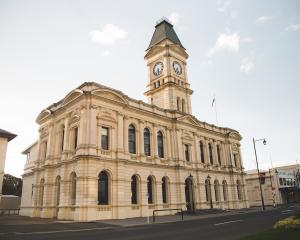An oral history project which has been going for at least five years and records the memories of North Otago residents is in jeopardy, with the Waitaki District Council proposing to withdraw funding.
The council has contributed $10,000 a year to the project, which interviews at least 10 people a year to build up a personal history of North Otago.
Some of those interviewed have since died.
However, the council is proposing to withdraw the funding as part of its long-term council community plan, which has prompted opposition from individuals and organisations, including the New Zealand Historic Places Trust.
The interviews are stored at North Otago Archives and are available to the public.
In a submission to the council's plan, the trust was disappointed with the intention to withdraw funding.
It said the information gathered by the project was a valuable source for better interpreting the district's history.
Christine Garey's father, the late George Gillies, was recorded as part of the oral history project.
She appreciated the need for cost-cutting, but believed it was "very short sighted" to consider cutting the project.
"I find it astonishing the council would consider abandoning this valuable project. It suggests limited vision rather than lateral thinking," she said.
The oral history recorded from Mr Gillies was priceless.
Much of what he said could only be gleaned through such an interview, she said.
One of those involved in the project, Nathalie Brown, said much of the information obtained in the interviews was not available in written form.
If North Otago did not have the project, then first-hand accounts of Bulleid's department store as it was from the 1930s until taken over by Hays in 1959 would not have been available.
Brothers George and Vic Bulleid were in their 80s when their oral histories were recorded in 2004.
They provided information on the store layout, names of staff, shop fittings and even a description of the financial and stock-taking systems which enabled the store to survive through the Depression.
Other interviews covered Chinese market gardening history, she said.
Jacqui Foley, also involved in the project, said the oral history was a comprehensive record of people's experiences involving people of all ages, she said.












